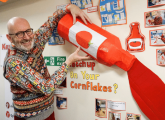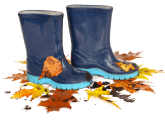Valuable lessons can be taken away from the enforced break, says Sue Cowley..
With lockdown hopefully behind us, and settings asked to fully reopen to all children, practitioners will be hoping for something that looks a bit more like ‘normality’ in September.
But as our current children return, and new children join us, practitioners need to consider the variety of experiences that the children have had during lockdown.
How can we build on and celebrate the learning that happened at home; how can we support the children whose families have experienced difficulties?
It is important to remember that “every family has their own story of lockdown” – it is important not to generalise when the range of experiences will be so diverse.
The narrative coming from the DfE during lockdown was one of deficit – children would have ‘lost out on learning’, there would be “gaps” that need to “be filled”.
It seemed impossible for the DfE to understand that children could still learn when they are not in school, perhaps especially so in the early years.
The government’s vision of ‘an education’ seemed to be an expert teacher delivering a pre-existing curriculum to compliant novice learners, rather than the joyous, messy and often random experience that is working with children from birth to five and beyond.
Experiences of lockdown will have varied considerably for different families. For those in key worker roles, lockdown may have meant working patterns that were similar to normal, but with the added anxiety of potentially contracting Covid-19.
It was generally those in higher-paid office-based jobs who had to continue to work from home, as well as look after their own children.
Many parents in lower-paid jobs, such as retail or catering, were likely to have been put on the jobs retention scheme and to have had some unanticipated quality time with their children during lockdown.
On social media, many parents are reporting that they effectively felt liberated from the demands of the workplace by being furloughed.
Many have clearly loved the opportunity to spend time playing and learning with their small children. Lockdown will of course have been hard for some families, particularly those without access to outdoor space, those with financial worries, those who have been bereaved and those where there were existing strains or stresses in the home environment.
However, for many it will have come as a welcome opportunity to spend some extra time with their young children.
In a phase where “positive relationships” with our families play such a crucial role in our philosophy, and where we view parents as a child’s “first and most enduring educators”, we need to firmly reject the DfE’s ‘deficit narrative’.
Children in the Early Years Foundation Stage (EYFS) do not have to be in our settings – if their parents wished, and they were financially in a position to do so, they could keep their children at home until the term after they turn five.
It is a reflection both of the pressures on working parents, but also of how parents view our settings positively, and see early education as so important, that such a high proportion of parents take up a childcare place.
When the children arrive in your setting, remember to celebrate all the learning that they have done while they were away. Ask parents and children to share the stories of what they learned during lockdown, and consider how you can build on and celebrate these successes.
Families have reported growing vegetables and flowers, spotting and identifying wildlife while out for walks together, painting rainbow pictures for the NHS, helping out neighbours by making deliveries, raising money for charity.
One parent reported sowing some sunflower seeds right at the start of lockdown, and measuring them as they grew with her children. All these are activities that can be built on and extended in our settings as we move forwards.
As well as celebrating the children’s learning, it is useful to think about what we can reflect on and learn from this period as early years practitioners too.
Perhaps most of all, it has reinforced the importance of strong links with our families, so that we can support children’s learning whatever the situation.
Even if our settings have to close, where localised lockdowns come into place, that partnership with parents will help us continue to support their children’s learning.
This period has also clarified the need to view all our children as “unique” – where the child’s context and interests play a defining role in their learning, and in how we support them to progress.
And this time has taught us how valuable and useful learning in the outdoors is – the enduring importance of an enabling environment. Because outdoors is somewhere that we can play and learn together in relative safety, as we deal with the uncertainties of the coming months and years.
Sue Cowley is an author, presenter and teacher trainer. She has helped to run her local early years setting for the last 10 years. Find out more at suecowley.co.uk.

Nick Sharratt – The power of picture books
Editors picks

Outdoor play – Could it save the planet?
Editors picks
